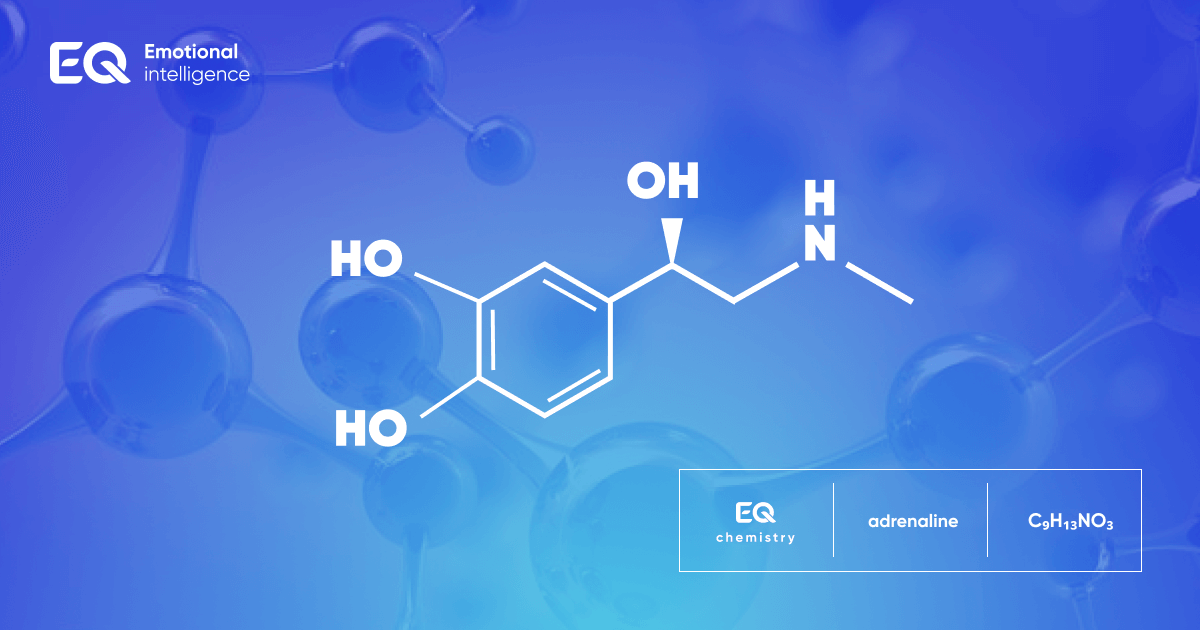Fear is an emotion based on past negative experiences. It triggers a “hit or run” response, in which the body is mobilized to fight or eliminate the danger. This is an evolutionary survival mechanism. And for him, of course, he has his own chemical cocktail of hormones – ADRENALIN, CORTISOL.
- How does fear feel at the bodily level?
- in general, the body becomes tense and constricted, especially the belly, chest, shoulders, neck;
- the face seems to freeze, and the eyes are widened or darting;
- heart rate and breathing increase
Fear is an emotional process that is caused by real or possible danger. Therefore, we stumble upon a real threat or a product of our mind – the brain immediately reacts, synthesizing stress hormones.
The stress mechanism was created by nature for survival and begins with a signal in the hypothalamus – the part of the brain responsible for endocrine activity and homeostasis of the body as a whole. Substances released in the hypothalamus generate a chain of synthesis of adrenaline and cortisol – the main stress hormones produced in the adrenal glands. The charge of energy from these hormones and the mobilization of the body’s forces should work as a means to “run or fight.” If this happens, the stress chain ends. If not, hormones continue to be produced, and the body suffers.
ADRENALINE is a hormone that is synthesized in the adrenal medulla from the amino acid Tyrosine
With the release of Adrenaline, the following is observed:
– increased heart rate, they say “the heart jumps out of the chest”;
– vasoconstriction of muscles and mucous membranes;
– an increase in oxygen demand, breathing becomes frequent and intermittent;
– dilated pupils (“fear has large eyes”);
– relaxation of the intestinal muscles

If adrenaline is high for a long time, the amount of muscle mass may decrease and depletion may occur, as a result of increased protein metabolism.
CORTIZOL is a hormone that is synthesized by the outer layer (cortex) of the adrenal glands under the influence of pituitary hormones. If Adrenaline is more of a “fast” stress hormone, then Cortisol is a more prolonged process
At too high concentrations of Cortisol, the following is observed:
– weakening of the immune system;
– upset of the gastrointestinal tract;
– growth retardation and bone fragility;
– decrease in sexual function;
– difficulty sleeping
– tiredness;
– malfunction of the thyroid gland;
– there is aggression and irascibility
To lower your stress hormones while increasing the secretion of the hormones of joy and happiness, consider several areas of your life:
- Balanced, high quality, rich in vitamins and minerals, with a sufficient amount of fiber. You can add natural adaptogens – substances that help the body to cope and adapt in adverse conditions and acquire stress resistance.
- Regular quality sleep normalizes hormonal processes, restores the body and creates an optimal emotional background.
- Physical activity. Choose your favorite activity – yoga, dance, fitness, sports, gym, running, swimming and many other interesting things that lead to the release of endorphins, serotonin, oxytocin and dopamine – hormones of joy and happiness.
- Relaxation of body and mind. The body needs relaxation. If the hormones are normal, then the parasympathetic system will take care of this. But if there is a lot of stress, pay attention and surround your body with warmth yourself – massage sessions, aromatherapy, a hot bath with sea salt. To relax the mind – meditate, practice breathing exercises.
As you can see, there are a lot of methods – you just need a desire to do.
Of course, the feeling of fear and the fear itself are different things. Fears are our clues. They may just be, but how to handle them is up to us. A calm attitude to fear is a very useful skill. After all, we came to know this world and fears – one of the key concepts that can develop us, and can, on the contrary, force us to close and lose the property of curiosity. We wish you to make friends with your fears and have the courage to look them in the eye, not getting involved, but also taking into account the objectivity of the situation.


Recent Comments